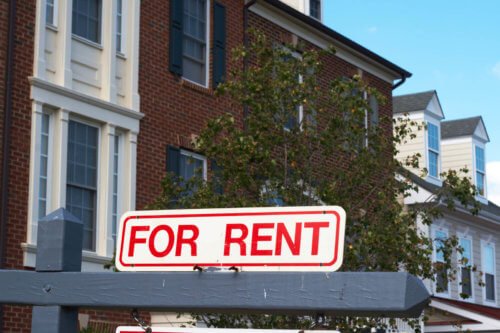
List Of Apartments That Accept Evictions Updated 2024
Mithas
- 0
Are you struggling to find an apartment due to past evictions on your record? It can be daunting, but there are options for individuals in this situation.
This blog post will provide you with a comprehensive list of apartments that accept evictions, updated for 2024. We will also discuss strategies for negotiating with landlords, improving your rental application post-eviction, and understanding your rights and legal protections as a tenant with a history of eviction.
Understanding Evictions and Your Rental Record
- Understanding Evictions and Your Rental Record
- Preparing to Apply for Apartments After an Eviction
- Nationwide Chains That Tend to Accept Applicants With Evictions
- Local Apartments in Major Cities That Accept Evictions
- Strategies for Negotiating With Landlords About Your Eviction
- Additional Resources and Programs for Tenants With Evictions
- How to Improve Your Rental Application Post-Eviction
- Understanding Your Rights and Legal Protections
Navigating the aftermath of an eviction can be challenging, especially when it comes to securing new housing. An eviction on your rental record can significantly deter potential landlords, who may interpret this as a signal of unreliable payment behavior or other tenant-related issues.
To mitigate the impact of an eviction, it’s crucial to be informed about what strictly your rental record reveals. This includes not only the fact of the eviction itself but also any contributing factors such as unpaid rent or property damage.
When preparing to apply for new apartments, take the initiative to request your rental history report. This action allows you to see what landlords see and allows you to address any inaccuracies or outdated information that may be working against you.
Understanding the details of your eviction is also vital. Be ready to articulate the circumstances that led to the eviction, such as financial hardships, and explain any steps you have taken to ensure such situations do not recur. This preparation can prove invaluable when you’re allowed to discuss your application with potential landlords.

Equally important is your approach to these discussions. Honesty and openness are essential when communicating with landlords about your eviction. Presenting your eviction candidly, along with any measures you’ve taken towards rectification and improvement, can help build a trust foundation.
It demonstrates your commitment to transparency and responsibility, which can persuade landlords to look beyond the eviction and consider your application on its broader merits.
Preparing to Apply for Apartments After an Eviction
As you gear up to apply for apartments post-eviction, compiling a robust packet of materials that showcase your reliability and readiness as a tenant is essential.
Start by securing letters of recommendation from individuals who can vouch for your character and responsibility, especially any previous landlords or property managers who had positive experiences with you.
Demonstrating consistent income is another crucial step, so include recent pay stubs or tax returns that illustrate your financial stability.
Equally important is crafting a thoughtful, detailed letter explaining the circumstances of your eviction. This letter should offer a clear, factual account of what happened without placing blame or making excuses.
Highlight any lessons learned from the experience and articulate specific ways you have worked to ensure it won’t happen again, such as setting up a budget, engaging in financial counseling, or establishing an emergency fund.
Additionally, consider including a plan of action for how you intend to meet your rental obligations. This might involve setting up automatic rent payments, providing a larger security deposit, or even proposing a shorter lease term to reassure the landlord of your commitment.

By approaching the application process with thorough preparation and transparency, you position yourself as a candidate who, despite past challenges, is dedicated to being a dependable and responsible tenant.
Nationwide Chains That Tend to Accept Applicants With Evictions
While finding an apartment post-eviction might seem challenging, certain nationwide apartment chains offer a beacon of hope. These chains have become more accommodating to individuals with complex rental histories, including evictions.
Their application processes are often more structured and standardized, providing a more straightforward path for applicants eager to demonstrate their current stability and readiness to be responsible tenants. It’s essential to come prepared when approaching these chains. Providing solid proof of income, a history of steady employment, and references can significantly enhance your appeal as an applicant.
Additionally, transparency about your eviction and a sincere explanation of the circumstances and steps you’ve taken can further your case. These chains recognize that a one-size-fits-all approach doesn’t only sometimes apply when evaluating potential tenants.
By showcasing your earnest effort to rectify past mistakes and your commitment to future responsibility, you may find these chains more receptive to your application. Researching and contacting these nationwide entities directly is advisable to inquire about their policies regarding evictions and any specific documentation they might require.
This proactive approach shows your initiative and provides you with a clearer understanding of what to expect during the application process, making it easier to prepare effectively.
Local Apartments in Major Cities That Accept Evictions
Following an eviction, finding a welcoming apartment in a major city can seem like an uphill battle. Still, there’s a silver lining with specific local apartment complexes that show leniency towards applicants with past evictions. These apartments often understand that circumstances leading to an eviction can vary widely and may not necessarily predict future tenant behavior.
To locate these accommodating complexes, conducting targeted research within the city of interest is beneficial. Local housing forums, online classifieds, and social media groups dedicated to housing in specific cities can be invaluable resources.
Engaging with these communities helps discover apartments that accept eviction histories and gather insights from others who have faced similar challenges.

Additionally, contacting local real estate agents or property management companies can be strategic. These professionals typically have up-to-date information on which properties currently accept tenants with complicated rental histories and can guide you toward those more likely to consider your application favorably.
When approaching these local options, it’s advantageous to have a prepared dossier containing all relevant documentation that showcases your financial stability and reliability as a tenant, similar to the approach recommended for nationwide chains.
This should include evidence of steady income, letters of recommendation, and a sincere letter explaining your eviction, highlighting any rectification measures you’ve taken.
Local landlords may value community engagement and personal relationships more than larger chains. Demonstrating your enthusiasm for contributing positively to the community and the neighborhood can further enhance your appeal as a potential tenant in these local apartments.
Strategies for Negotiating With Landlords About Your Eviction
When initiating a dialogue with landlords about your eviction, it’s essential to approach the conversation with transparency, preparedness, and confidence. Start by scheduling a meeting or conversation to discuss your history candidly and professionally.
Before this meeting, organize all relevant documentation, including a detailed letter about your eviction, financial records showcasing your current stability, and any letters of recommendation.
Express a willingness to answer any questions the landlord might have regarding your eviction and the circumstances that led to it.
Your goal is to demonstrate that your past eviction does not define your potential as a reliable tenant. To underscore your commitment to making timely payments, offer concrete evidence of your financial responsibility since the eviction, such as consistent income, savings, or a plan for automatic rent payments.
Negotiation may also involve proposing compromises that could mitigate the landlord’s risk, such as a higher security deposit or initially agreeing to a shorter lease term. I suggest enrolling in automatic payment plans to assure the landlord of regular rent payments.
Remember, your approach should be one of partnership; you’re working together to find a mutually beneficial arrangement that acknowledges your past while focusing on the future.
Demonstrating that you have learned from your previous eviction and have taken steps to ensure it won’t happen again can make a significant difference in these negotiations. Engage in these discussions with openness and problem-solving, ready to present your case as effectively as possible.

Additional Resources and Programs for Tenants With Evictions
A wealth of resources and programs are designed to offer support and guidance to individuals facing the challenge of finding housing with an eviction on their record. These initiatives, often spearheaded by non-profit organizations, provide essential services ranging from rental assistance to legal counsel to ease the burden of securing stable housing.
Government agencies at both the federal and local levels may have programs specifically targeted towards those with evictions, offering financial aid and workshops on tenant rights and responsibilities.
Community-based programs also play a critical role, offering personalized support that can help navigate the complexities of the housing market. These organizations often work closely with housing advocates to ensure tenants with evictions access fair and affordable housing options.
Additionally, many areas have legal aid societies dedicated to assisting low-income individuals, including those with evictions, in understanding their rights and contesting unjust rental practices.
It’s beneficial for tenants to engage with these resources early in their search for housing. By doing so, they can arm themselves with the knowledge and tools necessary to present a robust application despite their eviction history.
Taking advantage of such programs can provide immediate assistance and empower tenants with evictions to overcome the obstacles they face in securing housing, helping pave the way toward a more stable and hopeful future.
How to Improve Your Rental Application Post-Eviction
Enhancing your rental application after an eviction requires strategic planning and a focus on showcasing a pattern of reliability and financial stability. Begin by resolving any outstanding debts associated with your eviction.

This effort demonstrates responsibility and shows potential landlords that you have taken concrete steps to address past issues.
Building a solid rental history following your eviction is equally essential. Engage in rental agreements, even short-term or with higher deposits if necessary, that allow you to establish a record of timely payments and good tenancy. Collecting references from these experiences can reassure future landlords of your reliability.
Improving your credit score is another crucial aspect. Regularly monitor your credit report for inaccuracies and work towards lowering outstanding debts.
Consistent effort to improve your credit can be a positive signal to landlords about your financial management skills. Participating in financial literacy programs or credit counseling can offer insights into better budgeting and money management, further enhancing your appeal as a tenant.
Seek out landlord-tenant mediation services if available. These services can help address and potentially expunge your eviction from your record, making your application more attractive to potential landlords. Engaging in community service or other volunteer activities can also bolster your application by illustrating your commitment to positive contributions to your community.
Remember, each step to improve your situation post-eviction reflects your dedication to becoming a responsible and dependable tenant. By focusing on these strategies, you position yourself as a strong candidate for future rental opportunities.
Understanding Your Rights and Legal Protections
Navigating the rental market after an eviction requires not only preparation but also understanding your legal standing. Every state has landlord-tenant laws to protect renters, including those with eviction histories.

It’s crucial to acquaint yourself with these protections to ensure you’re treated relatively while searching for a new home. Many states prohibit discrimination based on rental history, offering a safeguard for applicants facing challenges due to past evictions.
If you suspect any unjust treatment or discrimination during the rental application process, consider consulting with a legal professional specializing in housing law.
Legal aid organizations often provide free or low-cost services to individuals in these situations, helping you understand your rights and how to advocate for yourself effectively.
Being well-informed about your legal protections empowers you to confidently navigate the housing market, making it more feasible to secure a new apartment and move forward from your eviction.

